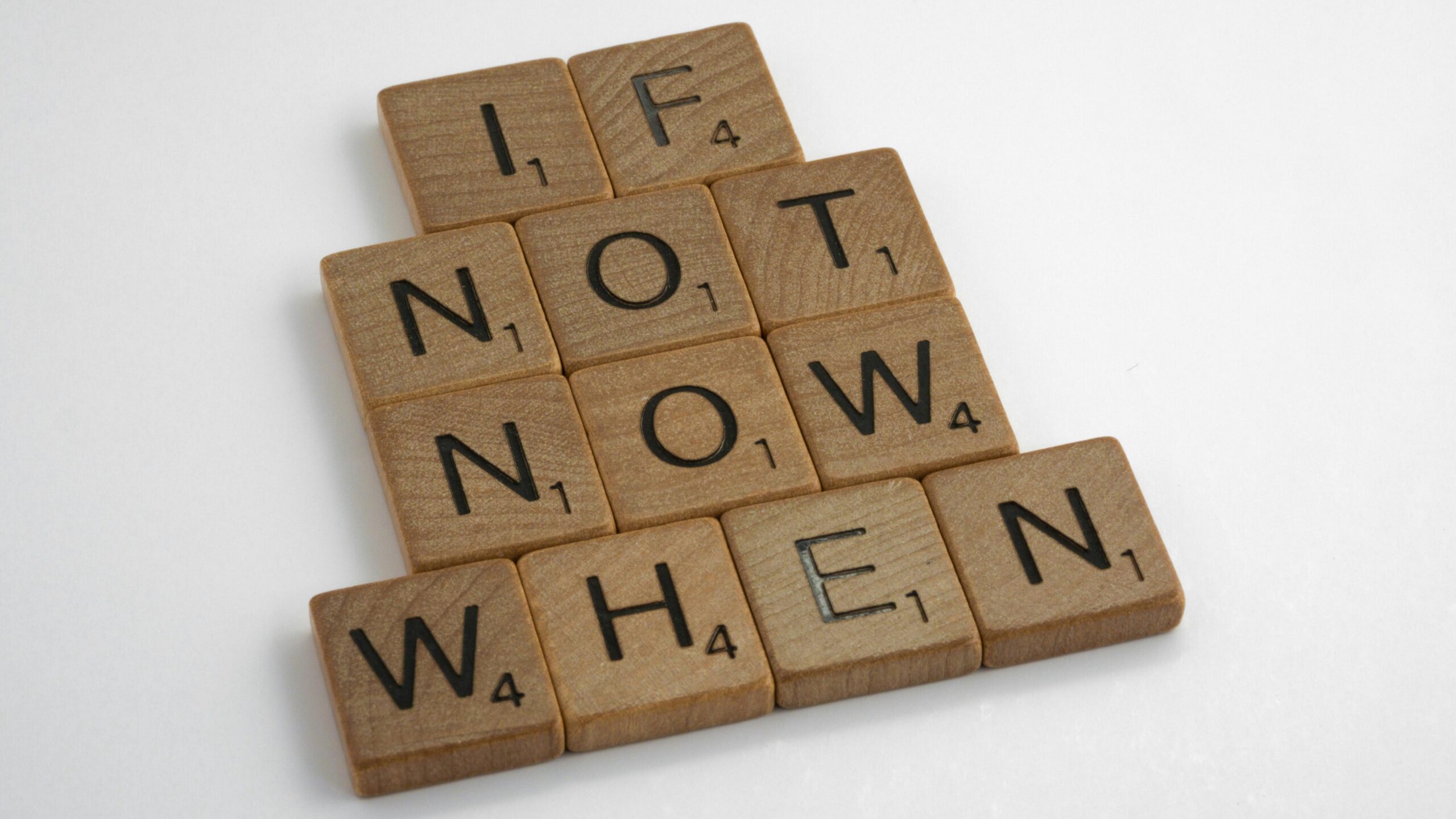Procrastination is something nearly everyone struggles with at some point. It’s the tendency to delay important tasks in favor of distractions or activities that feel easier in the moment. While it may seem harmless, procrastination often leads to stress, reduced performance, and feelings of guilt. The cycle becomes self-reinforcing: the more we procrastinate, the more anxious we become, which makes it even harder to start the task we’ve been avoiding.
On the other hand, productivity isn’t about working endlessly—it’s about managing your energy, focus, and time effectively. True productivity means accomplishing what matters most without burning out. Learning how to overcome procrastination requires self-awareness, healthy habits, and mindfulness, all of which empower you to make intentional choices that align with your goals and values. When you understand the underlying causes of your procrastination and develop strategies to address them, you can break free from this limiting pattern and unlock your full potential.
Understanding the Root Causes of Procrastination
Procrastination is not simply laziness. More often, it’s a response to deeper challenges like fear of failure, lack of clarity, perfectionism, or even emotional disconnection. When a task feels overwhelming, the mind seeks temporary relief through distractions. We might scroll through social media, reorganize our desk, or suddenly decide that now is the perfect time to clean the entire house—anything to avoid the task at hand.
The psychology behind procrastination is complex and multifaceted. Sometimes we procrastinate because we’re afraid of not meeting our own high standards or the expectations of others. Other times, we lack the confidence to begin, unsure of where to start or how to proceed. Tasks that seem ambiguous or poorly defined are particularly prone to procrastination because our brains struggle to create a clear action plan.
Understanding the reasons behind your procrastination is the first step to changing it. For example, if you avoid tasks because they seem too big, breaking them into smaller, manageable steps can reduce anxiety. Self-awareness helps you identify these underlying patterns so you can address the real cause rather than just the symptom. Ask yourself: “What am I really afraid of?” or “What’s making this task feel so difficult?” These questions can reveal the true obstacles standing in your way.
The Role of Mindfulness in Breaking the Cycle
Mindfulness is a powerful tool for overcoming procrastination. By practicing mindful living, you become more aware of when you’re avoiding a task and why. Instead of judging yourself harshly, you observe the urge to procrastinate with compassion. This awareness creates a space between the impulse to procrastinate and your response to it.
This simple pause allows you to make a conscious choice rather than acting on autopilot. Even taking a few deep breaths before starting a task can reset your mindset, making it easier to focus and move forward. Research has shown that mindfulness training in workplace settings can lead to significant improvements in productivity and reductions in stress and burnout.
Mindfulness practices like meditation, body scanning, or mindful breathing help train your brain to stay present. When you notice your mind wandering toward distractions or excuses, you can gently guide it back to the task at hand. This mental flexibility becomes stronger with practice, making it progressively easier to overcome the urge to procrastinate. Over time, mindfulness strengthens your ability to stay present and productive, transforming how you approach both work and life.
Building Healthy Habits That Support Productivity
Productivity isn’t about pushing harder—it’s about building systems that make it easier to stay consistent. Small, repeatable habits can transform the way you approach work. The key is to create an environment and routine that naturally lead you toward productive behavior rather than relying solely on willpower.
For example, setting aside a specific time each day for focused tasks helps train your brain to enter “work mode” at that time. Using time-blocking methods allows you to allocate dedicated periods for different types of work, ensuring that important tasks don’t get overlooked. The “two-minute rule” is another effective strategy: if a task takes less than two minutes, do it immediately rather than adding it to your to-do list.
By practicing habit management, you create routines that reduce decision fatigue and free mental energy for meaningful work. Consider implementing a morning routine that prepares you mentally and physically for productive work. This might include exercise, healthy breakfast, reviewing your goals, or a brief planning session. The more you can automate the small decisions through habits, the more cognitive resources you have available for important tasks.
Additionally, the concept of “habit stacking”—attaching a new habit to an existing one—can help you build productivity routines more effectively. For instance, after your morning coffee (existing habit), spend five minutes planning your day (new habit). These interconnected habits create a stronger foundation for sustained productivity.
Managing Emotions to Stay Focused
Emotions play a bigger role in procrastination than most people realize. Feelings of boredom, anxiety, or frustration often push us toward distractions. When faced with an unpleasant task, our brain seeks immediate emotional relief, even if it means creating problems for our future self. To overcome this, it’s important to build emotional resilience and develop healthier ways of processing difficult feelings.
Journaling, meditation, or even short walks can help regulate emotions and bring clarity. Writing about your feelings can help you understand what’s really bothering you about a task. Is it truly difficult, or are you making it harder than it needs to be? Are you afraid of something specific, or is it just general anxiety? By practicing self-awareness, you learn to differentiate between temporary discomfort and genuine exhaustion.
This empowers you to stay on track without ignoring your mental health. Sometimes, what feels like procrastination is actually your body and mind signaling that you need rest. Learning to distinguish between avoidance and legitimate need for recovery is crucial for long-term productivity. Productivity isn’t about suppressing emotions but about managing them with balance and compassion.
Developing emotional intelligence around your work habits also means recognizing your emotional patterns throughout the day. Some people are naturally more focused in the morning, while others hit their stride in the afternoon or evening. Aligning your most challenging tasks with your peak emotional and cognitive states can significantly reduce procrastination.
Setting Clear and Realistic Goals
One reason procrastination thrives is the lack of clear direction. Vague goals create confusion, making it easier to postpone tasks. When you don’t know exactly what success looks like, your brain struggles to create a path forward. Setting realistic and specific goals provides structure and motivation, giving you a clear target to aim for.
Instead of saying “I need to work on my project,” define it as “I will write one page of my project today.” These smaller, actionable steps are easier to achieve and create momentum. Each small accomplishment builds confidence and makes the next step feel more manageable. Clarity not only reduces procrastination but also makes progress measurable and rewarding.
The SMART goal framework—Specific, Measurable, Achievable, Relevant, and Time-bound—is particularly effective for combating procrastination. When goals meet these criteria, they become concrete and actionable rather than abstract and overwhelming. Breaking larger projects into weekly or daily milestones creates a roadmap that feels achievable rather than insurmountable.
The Importance of Environment in Productivity
Your surroundings significantly influence your focus. A cluttered, noisy, or distracting environment often makes it harder to work effectively. The physical space where you work sends signals to your brain about what type of behavior is expected. Creating a workspace that supports concentration—whether it’s a quiet room, a clean desk, or background music that promotes focus—can boost productivity.
This act of mindful living reinforces the connection between environment and behavior, making it easier to stay committed to your tasks. Consider the lighting in your workspace, the comfort of your chair, and the accessibility of materials you need. Even small adjustments like removing your phone from sight or using website blockers during focused work sessions can dramatically reduce procrastination triggers.
By intentionally designing your environment, you remove barriers that feed procrastination. Some people benefit from working in public spaces like coffee shops or libraries, where the presence of others working creates social accountability. Others need complete silence and isolation. Experiment with different environments to discover what helps you enter a productive flow state most easily.
Practicing Self-Compassion During Setbacks
Everyone procrastinates at times, and being overly critical of yourself can make the cycle worse. Instead of harsh self-judgment, practice self-compassion. When you miss a deadline or fall behind on your goals, treat yourself with the same kindness you’d offer a friend facing similar struggles. Recognize that setbacks are part of the process and focus on getting back on track.
Self-compassion builds resilience and prevents discouragement from turning into long-term avoidance. Research shows that people who practice self-compassion are actually more likely to take responsibility for their mistakes and make positive changes, because they’re not paralyzed by shame and self-criticism. Remember, productivity is a journey of progress, not perfection. Each effort counts, and every small action brings you closer to your goals.
When you do procrastinate, use it as a learning opportunity rather than a reason for self-punishment. What triggered the procrastination? What could you do differently next time? This growth mindset approach transforms failures into valuable feedback that helps you improve your strategies over time.
Long-Term Benefits of Overcoming Procrastination
Overcoming procrastination brings benefits that extend beyond productivity. Personally, it reduces stress, builds confidence, and nurtures healthier habits. When you consistently follow through on your intentions, you develop a stronger sense of self-trust and self-efficacy. This confidence spills over into other areas of life, making you more willing to take on challenges and pursue ambitious goals.
Professionally, it enhances performance, strengthens discipline, and opens doors to new opportunities. People who consistently deliver on their commitments are more likely to be trusted with important responsibilities and leadership roles. Your reputation as someone reliable and productive becomes one of your most valuable professional assets.
Most importantly, it helps you reclaim your time and energy, allowing you to focus on what truly matters. Understanding and addressing the fears that drive procrastination can be transformative, helping you break free from avoidance patterns and pursue your goals with confidence. Productivity isn’t about doing more but about doing what aligns with your values and aspirations.
When you’re no longer wasting mental energy on guilt and anxiety about undone tasks, you have more capacity for creativity, relationships, and personal growth. The psychological freedom that comes from overcoming procrastination is perhaps its greatest benefit—allowing you to live more fully in the present moment rather than being weighed down by what you should have done.
Choosing Growth Over Delay
Procrastination can feel powerful in the moment, but it doesn’t define you. By cultivating mindfulness, building supportive habits, and practicing self-awareness, you can transform procrastination into productivity. The journey from chronic procrastinator to productive individual isn’t about becoming perfect—it’s about becoming more intentional and aligned with your goals.
The key isn’t to eliminate challenges but to respond to them with clarity, patience, and purpose. Every step you take toward action builds momentum, shaping a life of intentional progress and fulfillment. Start small, celebrate your wins, and be patient with yourself as you develop new patterns. Over time, what once felt impossible becomes your new normal.
If you want to explore more strategies for living with focus, balance, and purpose, visit personalorb.com. There, you’ll find inspiring insights and practical tools to help you overcome distractions and embrace a more productive, mindful lifestyle.

